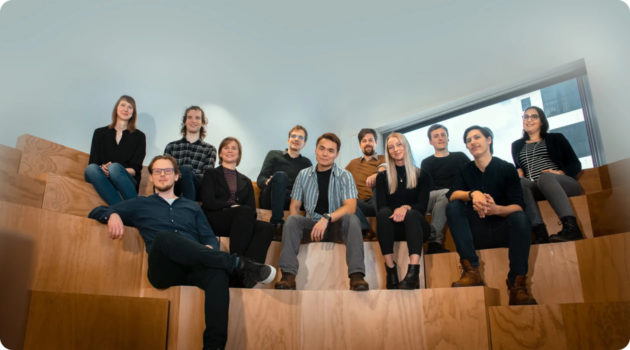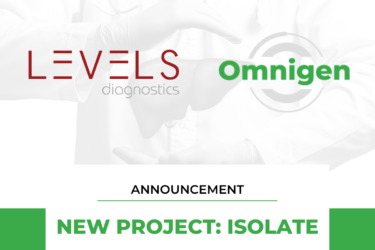To market the PITA tool as a diagnostic platform for pancreatic cancer patients, a total of 1.38 million euros will be invested by Omnigen B.V., Level Diagnostics B.V. and the Erasmus Medical Center (EMC) Rotterdam with a contribution of €665.872 from the REACT-EU recovery fund. “This grant will be used by the consortium to make PITA even more efficient, further validate the tool through scientific studies, and apply for the necessary certifications.”
Pancreatic cancer is the seventh most deadly cancer worldwide. Among these patients, the percentage still alive after five years is only six percent. The standard treatment for pancreatic cancer is currently chemotherapy called FOLFIRINOX. But approximately 45 percent of these patients do not respond to this costly chemotherapy, while they endure its serious side effects.
Predictions based on DNA variations
In order to improve the treatment strategy and the quality of life among this patient group, Omnigen and the EMC, in particular Professor Casper van Eijck and associate professor Andrew Stubbs, joined forces in 2017. With a grant from the Eurostars program, this collaboration resulted in the personalized diagnostic tool PITA, which stands for Pancreatic Insightful Treatment Analysis.
“Using an algorithm developed by Omnigen, this tool can advise the doctor whether or not a patient will benefit from FOLFIRINOX based on variations in their DNA”, founder and CEO of Omnigen Berry Kriesels says. “With a buccal mucosa or blood sample of about five milliliters, the tool can predict in advance whether the treatment with the FOLFIRINOX chemotherapy will work or not in a low-invasive manner. The tool can also provide an indication of whether patients will experience severe or lesser side effects.”
A promising tool with high precision
These preliminary results have been validated within the Eurostars project by a study led by collaborating partners Omnigen and the EMC. In a population of 200 patients, the PITA tool has been shown to distinguish responders and non-responders to the FOLFIRINOX chemotherapy. Kriesels explains: “The algorithm can distinguish between responders and non-responders with approximately 90 percent certainty.”
It is this precision that makes the PITA tool a promising personalized tool for pancreatic cancer treatment. With the knowledge and results gained from the Eurostars project that has now been completed, it is time to bring the tool closer to the patient. Some steps still need to be taken, in which the tool will be made more efficient with further increased precision. In addition, clinical approval, regulatory acceptance and further validation in scientific follow-up research will have to be achieved.
Saving unnecessary suffering and social costs
This optimization requires the necessary investments. That is why Omnigen and the EMC, this time together with Level Diagnostics, decided to call on the resources of the province of Zuid-Holland within the REACT-EU recovery fund. This recovery fund focuses on the digitization and sustainability of the economy, which has been hit hard by the COVID-19 crisis. The consortium submitted a successful application to the subsidy provider Kansen voor West, whose aim is to promote innovation within the province of Zuid-Holland.
In addition to the parties involved in the Netherlands, support will also be provided from Belgium. The Antwerp University Hospital (UZA) will supply patient samples for further validation of the tool. This takes place under the watchful eye of oncologist Dr. Timon Vandamme, affiliated with the UZA. With the involvement of international partners, the consortium hopes to accelerate the roll-out of this form of personalized patient diagnostics in several European Member States.
“There is a lot of talk about personalized patient diagnostics these days, but you hardly find this in the current market”, Kriesels emphasizes. “Personalised treatment will be extremely valuable in the future: not only for the patient and the practitioner, but also for healthcare and healthcare costs, the economy and its sustainability. Diagnosing treatment effectiveness saves unnecessary suffering and social costs, and opens up space for alternative and potentially more effective treatments.”






